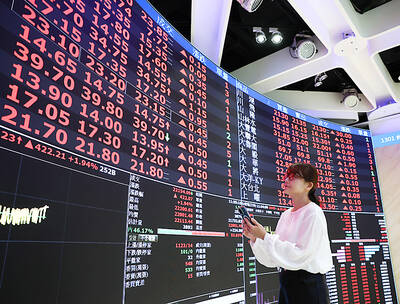Far EasTone Telecommunications Co Ltd (FET, 遠傳電信), the nation’s No. 3 telecom operator, yesterday launched a new 4G handset leasing service in a bid to boost its number of subscribers and increase revenues.
FET is the nation’s first telecom operator to offer the mobile phone leasing service, following in the steps of its US peers Sprint and T-Mobile, as handset leasing demand rises.
The service is one step further by the telecom carrier to affix customers to its network, after offering handset financing services for iPhone buyers last month under the name of “early upgrade plan.”
The latest leasing service makes premium phones from Apple Inc’s iPhone 6S series to Samsung’s Galaxy Note 5 more affordable for price-sensitive consumers, who would be able to lease the smartphones by paying a monthly fee of NT$297. The service requires subscribers to sign a rate plan of NT$1,399 per month for a two-year service contract.
FET chief sales and marketing officer Maxwell Cheng (鄭智衡) said the new leasing service is to boost the company’s revenue per user, given higher rate plans designed for users who want to lease phones.
Each of FET’s 4G subscribers spent between NT$1,100 and NT$1,200 per month, according to Cheng.
FET estimates that about 10 percent to 20 percent of the nation’s mobile subscribers would choose to lease a phone, instead of buying one.
As a result, the new phone leasing service is to allow FET to increase its share in the nation’s 4G market, as leasing phones is becoming a global trend and the sharing economy becomes popular amid a weak economy, FET said.
More than half of Sprint’s post-paid subscribers opted to lease their phones instead of owning one, after the US telecom company rolled out the service in September last year, FET said. T-Mobile also launched a similar service in June, it said.
FET had 2.59 million 4G subscribers as of Sept. 30, accounting for 28 percent of the nation’s 4G market.

UNCERTAINTIES: Exports surged 34.1% and private investment grew 7.03% to outpace expectations in the first half, although US tariffs could stall momentum The Chung-Hua Institution for Economic Research (CIER, 中華經濟研究院) yesterday raised its GDP growth forecast to 3.05 percent this year on a robust first-half performance, but warned that US tariff threats and external uncertainty could stall momentum in the second half of the year. “The first half proved exceptionally strong, allowing room for optimism,” CIER president Lien Hsien-ming (連賢明) said. “But the growth momentum may slow moving forward due to US tariffs.” The tariff threat poses definite downside risks, although the scale of the impact remains unclear given the unpredictability of US President Donald Trump’s policies, Lien said. Despite the headwinds, Taiwan is likely

READY TO BUY: Shortly after Nvidia announced the approval, Chinese firms scrambled to order the H20 GPUs, which the company must send to the US government for approval Nvidia Corp chief executive officer Jensen Huang (黃仁勳) late on Monday said the technology giant has won approval from US President Donald Trump’s administration to sell its advanced H20 graphics processing units (GPUs) used to develop artificial intelligence (AI) to China. The news came in a company blog post late on Monday and Huang also spoke about the coup on China’s state-run China Global Television Network in remarks shown on X. “The US government has assured Nvidia that licenses will be granted, and Nvidia hopes to start deliveries soon,” the post said. “Today, I’m announcing that the US government has approved for us

When Lika Megreladze was a child, life in her native western Georgian region of Guria revolved around tea. Her mother worked for decades as a scientist at the Soviet Union’s Institute of Tea and Subtropical Crops in the village of Anaseuli, Georgia, perfecting cultivation methods for a Georgian tea industry that supplied the bulk of the vast communist state’s brews. “When I was a child, this was only my mum’s workplace. Only later I realized that it was something big,” she said. Now, the institute lies abandoned. Yellowed papers are strewn around its decaying corridors, and a statue of Soviet founder Vladimir Lenin

The National Stabilization Fund (NSF, 國安基金) is to continue supporting local shares, as uncertainties in international politics and the economy could affect Taiwanese industries’ global deployment and corporate profits, as well as affect stock movement and investor confidence, the Ministry of Finance said in a statement yesterday. The NT$500 billion (US$17.1 billion) fund would remain active in the stock market as the US’ tariff measures have not yet been fully finalized, which would drive international capital flows and global supply chain restructuring, the ministry said after the a meeting of the fund’s steering committee. Along with ongoing geopolitical risks and an unfavorable